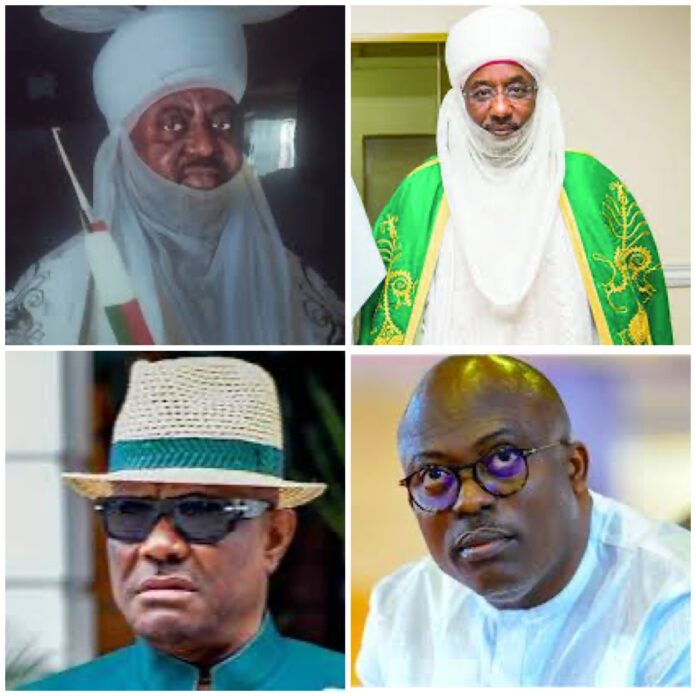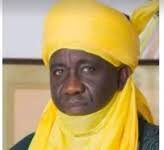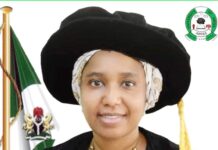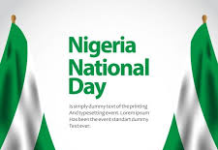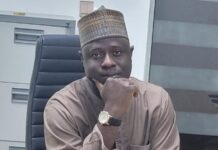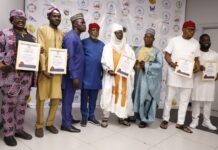Kano Emirate Tussle, Rivers Political Brouhaha and FG’s Conspiratorial Silence, By Kabir Akintayo
POLITICS DIGEST- In the polity of Kano and Rivers States at the moment, chaos instead of peace is reigning supreme. In Rivers, it is Governor Siminalayi Fubara versus Nyesom Wike, the incumbent Minister of the Federal Capital Territory, FCT, who used to be the former’s godfather.
In the ancient city of Kano however, the battle royale is between the reinstated Emir Muhammadu Sanusi II and his cousin (but now deposed) Emir Aminu Ado Bayero. While many hope that the tension in the two states will quickly simmer, it has continued to linger.
*The Kano Emirate Tussle*
The Kano Emirate, established in the 19th century, has historically played a significant role in the sociopolitical and cultural life of Northern Nigeria. Emirs of Kano have wielded considerable influence, not only within the emirate but also in national politics. However, the role and influence of traditional rulers have evolved, particularly following Nigeria’s independence and the introduction of a federal system of governance.
The recent tussle began in 2019 when Governor Ganduje, following a fallout with Emir Muhammadu Sanusi II, initiated the splitting of the Kano Emirate into five smaller emirates. This move was seen by many as an attempt to diminish the power of Emir Sanusi, a vocal critic of the governor’s policies. The restructuring was legally challenged, leading to a protracted legal and political battle.
In 2019, the Kano Assembly amended the state emirate law, creating four additional emirates. Ultimately, on March 9, 2020, the Ganduje government dethroned and exiled Sanusi. Aminu Ado Bayero, son of the late emir, took the throne as the 15th Emir of Kano. However, with Kwankwaso’s political godson, Abba Kabir Yusuf, taking power from Ganduje in 2023, it was only a matter of time before Sanusi returned as Emir. On Thursday, May 23, the State Assembly repealed the Ganduje-era emirate law, and Sanusi was reinstated as the 16th Emir of Kano, triggering what has been aptly described as a game of thrones.
*FG Intervention and its Implications*
The federal government’s involvement in the Kano Emirate crisis has been cautious. While it refrained from direct intervention, federal authorities faced pressure from various quarters to mediate. The crisis underscored the delicate balance the federal government must maintain in dealing with traditional institutions. Overreach could provoke a backlash, yet inaction could perpetuate instability.
A state like Kano is crucial for elections, bearing in mind that the 2027 election is already around the corner. President Tinubu wouldn’t want to appear on bad terms with the Kwankwasiyya movement, hence his neutrality. In the 2023 election, the former governor of the state, Rabiu Musa Kwankwaso, polled over 997,000 votes with the not-too-popular New Nigeria People’s Party (NNPP), while Tinubu himself secured a total of 517,341 votes, the second-highest number he received in the 2023 elections after Lagos state.
There are already grudges in the camp of the red cap movement that the FG is emboldening the state government to depose Emir Aminu Ado Bayero by providing enormous security for his protection. The state government had ordered the demolition of the Nasarawa Palace where Aminu Ado Bayero resides, but with the security surrounding the palace, Governor Abba couldn’t do much damage.
*Court Judgment*
Initially, there were conflicting orders from the court. Justice S. Amobeda of the Federal High Court in Kano had ordered the inspector-general of police and the Kano State commissioner of police to ensure that all rights and privileges of an Emir were given to Ado Bayero. Justice Amina Aliyu of the Kano State High Court restrained the police, the Department of State Services, and the Nigerian Army from evicting Muhammadu Sanusi II, the reinstated Emir of Kano, from the palace.
Read Also:
Recently, a Federal High Court in Kano nullified the reinstatement of Muhammadu Sanusi II as the 16th Emir of Kano. The court also nullified all actions taken after the controversial reinstatement. The presiding judge, Justice Abdullahi Liman, said, “I hereby order that every step taken by the government is hereby nullified and becomes null and invalid and that this does not affect the validity of the repealed Emirates Law but actions taken by the governor which include the assenting to the law and the reappointment of Sanusi.”
Meanwhile, the Attorney General of Kano State, the Speaker of the Kano State House of Assembly, and the Kano State House of Assembly, through their counsel, Ibrahim Isah-Wangida, filed a motion ex parte dated May 27. They are asking the court to restrain Ado Bayero and four other dethroned emirs of Bichi, Rano, Gaya, and Karaye from parading themselves as emirs. The court adjourned the hearing of the Emirate tussle to July 4 to entertain all applications and originating motions.
On Thursday, the court further adjourned till July 18 to rule on an application for an extension of time and a notice of preliminary objection. Justice Amina Adamu-Aliyu fixed the date for ruling after listening to the parties in the suit. The judge will also rule on an application seeking to set aside an ex parte order of the court as well as the joinder of parties to the case. The judge also barred all lawyers in the case from granting media interviews until the substantive case is determined.
*Rivers State Political Crisis*
Rivers State, a key economic hub in Nigeria due to its oil wealth, has experienced significant political turmoil, characterized by intense power struggles and violent confrontations. The crisis involves conflicts between the former governor of the state, now Federal Capital Territory (FCT) minister, Nyesom Wike, and the incumbent governor, Siminalayi Fubara.
The dispute between a godfather and godson is not new, as such has been a recurrent issue in the political dispensation. Wike handed over power to Governor Fubara, his former Accountant-General, to maintain his control over state affairs. However, things went sour when the Rivers State Assembly tried to impeach the governor over a disagreement between Fubara and his godfather, Nyesom Wike.
President Tinubu initially intervened to resolve the political crisis between Wike, who was instrumental to his presidential election victory in the state, and his chosen successor, Fubara. However, the president appears to have since lost interest as the governor, backed by much of the state’s populace and key stakeholders, continues to decimate Wike’s much-touted political structure.
The governor recently removed Wike’s ally, Chidi Awuse, as Chairman of the Rivers State Council of Traditional Rulers. Awuse was replaced by the traditional ruler of the Apara Kingdom, Eze Chike Worlu Wodo. Earlier on June 19, Governor Fubara replaced local government chairmen loyal to Wike with caretaker chairmen, following the expiration of their tenure on June 17, despite moves by Martin Chike Amaewhule of the state assembly extending their tenure.
While Amaewhule argued that since the local government election had not been held, it was necessary to extend the tenure of the elected council chairmen, as according to him, the Nigerian constitution only allows for elected council chairmen. Governor Fubara maintained that such an extension was unconstitutional, and in any case, most states in the country have caretaker chairmen at the local government level, so he wasn’t doing anything new.
The change of guard at the councils caused tension in some local government headquarters, leading to the death of two individuals, including a police officer. Governor Fubara’s supporters prevented the out-gone chairmen from accessing the secretariats, prompting the police to seal the secretariats. Meanwhile, the Rivers State Independent Electoral Commission (RSIEC) fixed October 5, 2024, for the local government elections in the state. This move is perceived to diffuse the tension owing to the crisis rocking the local government in the state.
*FG Action: Challenges and Criticisms*
The federal government’s role in both the Kano Emirate tussle and the Rivers political crisis illustrates the complex dynamics of intervention in state and traditional affairs. Federal intervention in state affairs is governed by Nigeria’s federal structure, which delineates powers between federal and state authorities. However, these boundaries can be ambiguous, leading to conflicts over jurisdiction and authority. In the Kano Emirate case, the federal government’s reluctance to intervene directly reflects respect for state autonomy, whereas in Rivers State, federal intervention has been justified on grounds of maintaining law and order.
Effective federal intervention requires balancing respect for local autonomy with the need to maintain national stability. But achieving this balance is crucial for maintaining the integrity of Nigeria’s federal system.

